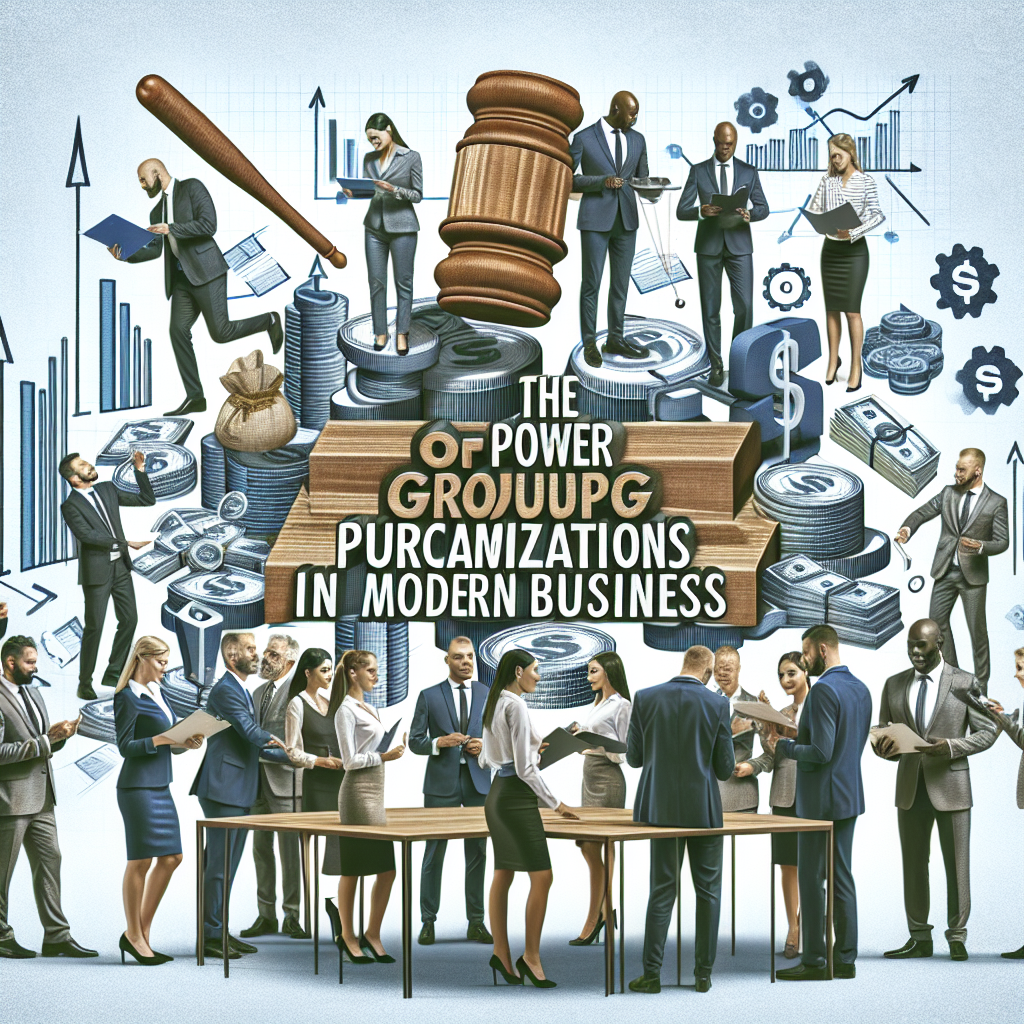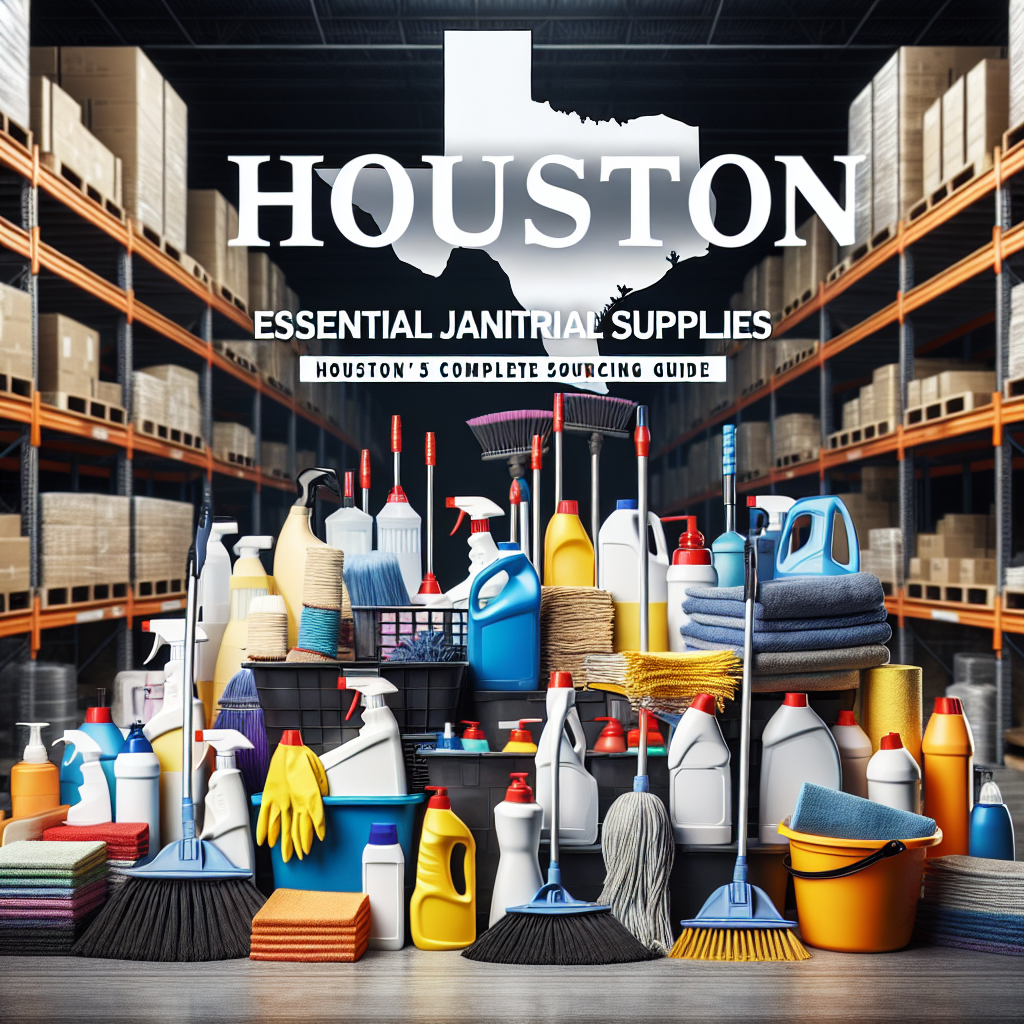Introduction
Government contract vehicles are essential tools that make it easier for government agencies to buy goods and services from suppliers. These vehicles simplify the purchasing process, ensuring efficiency and compliance with federal regulations. They include various types of agreements designed to meet different needs at the federal, state, and local levels.
Understanding the different types of government contract vehicles empowers businesses to navigate the federal contracting landscape. This knowledge helps identify suitable opportunities and improves strategic positioning in this competitive environment.
For example, maximizing federal grant funding for nonprofits can significantly enhance their operational capabilities. Similarly, boosting employee morale with break room supplies demonstrates how these contracts can be applied in the private sector.
Moreover, understanding essential PPE for airborne precautions in healthcare or knowing how to maximize supplier performance to ensure quality and reliability are critical aspects that can be navigated more efficiently with the right government contract vehicle.
The journey towards mastering procurement doesn’t stop here. It requires continuous learning and adaptation, much like Frank Corris’s transformative journey in purchasing, where he emphasizes the importance of mastering procurement through learning and strategic thinking.
1. Indefinite Delivery/Indefinite Quantity (IDIQ) Contracts
Definition and Structure of IDIQ Contracts
Indefinite Delivery/Indefinite Quantity (IDIQ) contracts are flexible procurement tools used by government agencies to acquire a range of supplies and services. These contracts allow for an uncertain quantity of goods or services during a fixed period. The structure typically includes a Statement of Work (SOW) that outlines the general requirements, while specific delivery orders can be issued as needs arise.
Types of IDIQ Contracts
- Single-Award IDIQ: Only one contractor is selected to fulfill all tasks, simplifying management and ensuring streamlined communication.
- Multiple-Award IDIQ: Multiple contractors are chosen, promoting competition and allowing agencies to select the best vendor for each task order.
Common Applications and Industries
IDIQ contracts are prevalent in various sectors including:
- Information Technology: Regular updates, maintenance, and support services.
- Construction Services: Ongoing projects requiring multiple phases and adjustments.
- Research and Development: Agencies needing continuous innovation can issue task orders as new challenges emerge.
These features make IDIQ contracts indispensable in federal procurement, offering both flexibility and efficiency in meeting diverse governmental needs. To maximize the effectiveness of these contracts, agencies often leverage strategies like strategic sourcing and supplier innovation, which can significantly enhance the overall procurement process. For further inquiries or assistance related to IDIQ contracts, feel free to contact us.
2. Multiple Award Schedule (MAS)
The Multiple Award Schedule (MAS), managed by the General Services Administration (GSA), simplifies the procurement process for federal agencies. It serves as a vital tool in the federal procurement strategy, enabling government entities to acquire a wide range of products and services efficiently.
Key features of MAS include:
- Flexible Contracting: Agencies can choose from multiple vendors offering similar products or services, fostering competition and ensuring favorable pricing.
- Streamlined Acquisition: The schedule allows for quicker access to commercial products, reducing the time spent on procurement processes.
Examples of offerings available through MAS encompass:
- Office Supplies: Essential items like paper, pens, and other business necessities.
- Information Technology Solutions: Software, hardware, and IT support services.
- Professional Services: Consulting, training, and management solutions tailored for government needs.
The significance of MAS lies in its ability to support multi-agency contracts by centralizing procurement options. This integration enhances efficiency while addressing diverse needs across various federal departments.
Understanding MAS can empower businesses like Hubzone Depot LLC to leverage these opportunities effectively in the competitive landscape of government contracting. For instance, by focusing on areas such as tail spend management and supplier relationship management, they can optimize their operations. Moreover, knowledge about procurement optimization strategies could significantly enhance their bidding success rate.
In terms of career prospects within this domain, it’s important to note that the demand for skilled professionals such as procurement engineers is on the rise. Insights into procurement engineer salary trends can provide valuable information for those considering a career in this field.
3. Blanket Purchase Agreements (BPAs)
Definition and Purpose
Blanket Purchase Agreements (BPAs) are a type of government contract vehicle designed for simplified acquisitions. They enable agencies to procure goods or services on a recurring basis without the need for individual purchase orders each time. BPAs streamline the procurement process, making it easier for contracting officers to manage repetitive purchasing needs.
Advantages for Contracting Officers and Agencies
Utilizing BPAs presents several benefits:
- Efficiency: Reduces administrative burden by consolidating multiple purchases under one agreement.
- Cost Savings: Bulk buying often leads to better pricing, allowing agencies to maximize their budgets.
- Flexibility: BPAs can accommodate variable quantities of goods or services, adapting to changing needs.
Typical Use Cases for BPAs
BPAs are commonly used in various sectors, including:
- Office supplies and equipment
- Maintenance, repair, and operations (MRO) products
- Janitorial and sanitation supplies
Contracting officers find BPAs particularly advantageous when managing ongoing requirements, enabling them to respond rapidly while ensuring compliance with federal regulations. By leveraging BPAs, agencies can enhance procurement efficiency while maintaining accountability.
4. Government-Wide Acquisition Contracts (GWACs)
Government-Wide Acquisition Contracts (GWACs) are essential tools for federal agencies, making the procurement process easier across different sectors.
Definition and Scope
GWACs are contracts that have already been competed and allow federal agencies to buy a wide range of products and services, with a primary focus on IT solutions. These contracts offer a simpler way to procure, saving time and resources when acquiring goods and services.
Importance for IT Services
As technology becomes increasingly important in government operations, GWACs provide access to innovative IT solutions. They enable agencies to quickly address their specific needs while ensuring compliance with federal regulations. This framework encourages competition among contractors, potentially leading to cost savings and improved service delivery.
Successful Implementations
There are several examples that demonstrate the effectiveness of GWACs:
- GSA Alliant: This contract, which is centered around IT services, allows agencies to select from a wide range of qualified vendors.
- NASA SEWP: A prominent GWAC that supports various IT products and services, showcasing flexibility in meeting different agency requirements.
The strategic use of GWACs empowers agencies to effectively leverage technology while improving procurement efficiency throughout the federal landscape.
5. Multi-Agency Contracts (MACs)
Multi-Agency Contracts (MACs) are specifically designed to serve multiple federal agencies, enabling them to procure goods and services efficiently. Unlike Government-Wide Acquisition Contracts (GWACs) that focus primarily on IT services across all government entities, MACs offer tailored contracts that cater to the unique needs of various departments.
Key Differences from GWACs:
- Scope: MACs encompass a broader range of products and services beyond IT.
- Flexibility: Agencies can select services that fit their specific requirements, enhancing customization.
Benefits of MACs:
- Collaboration: Facilitate cooperation among different agencies, allowing shared resources and expertise.
- Cost Efficiency: Leverage collective buying power for better pricing and terms, similar to the exclusive membership benefits offered by some procurement platforms.
Examples of Successful Usage:
- The Department of Defense utilized MACs for acquiring logistics support, demonstrating how multiple agencies can streamline procurement processes while ensuring accountability.
- The General Services Administration (GSA) has implemented MACs for facilities management, showcasing versatility in addressing various operational needs.
These tailored contracts serve as vital tools in modern government procurement strategies, providing an effective means for agencies to meet their diverse operational demands.
Other Notable Procurement Programs
1. Commercial Platforms
Government agencies are increasingly adopting commercial platforms as a modern procurement method to meet their routine purchasing needs. These online platforms streamline the procurement process, providing a wide array of products and services that can be purchased with ease.
Key features of commercial platforms include:
- User-Friendly Interfaces: Designed for efficiency, these platforms allow users to navigate through extensive catalogs quickly.
- Diverse Offerings: Agencies can find everything from office supplies to specialized equipment, ensuring they meet their varied procurement goals.
- Instant Access and Convenience: With just a few clicks, users can place orders, track shipments, and manage purchases in real time.
The significance of commercial platforms lies in their ability to enhance procurement efficiency. They facilitate:
- Cost Savings: By leveraging bulk buying power and competitive pricing models, agencies often achieve lower costs on routine items.
- Time Efficiency: Quick ordering processes and reduced administrative burdens allow agencies to focus on core functions rather than getting bogged down in procurement logistics.
Agencies like Hubzone Depot LLC utilize commercial platforms effectively. This HUBZone-certified supplier offers access to a broad range of products while maintaining compliance with government regulations. Their approach highlights the importance of strategic partnerships with vendors to ensure quality service delivery through these platforms.
Another advantage is the ability of commercial platforms to provide:
- Real-Time Data Analytics: Agencies can monitor spending patterns, identify trends, and adjust procurement strategies accordingly.
- Integration Capabilities: Many commercial platforms seamlessly integrate with existing financial systems, enhancing budget management and reporting accuracy.
Utilizing commercial platforms allows government entities not only to fulfill immediate purchasing needs but also aligns with broader procurement strategies aimed at efficiency and effectiveness. As federal contracting continues to evolve, these platforms represent a vital component in navigating the complex landscape of government contract vehicles. The flexibility they offer empowers agencies to address diverse requirements while maintaining transparency and accountability in their spending practices.
However, it’s crucial to understand that procurement is not without its challenges. There are times when the market conditions can lead to unforeseen hurdles. In such scenarios, having a robust strategy can help in building resilience during tough times.
Additionally, there are certain myths surrounding the usage of Group Purchasing Organizations (GPOs) that need debunking. It’s essential for agencies to have a clear understanding of these misconceptions as they navigate through the procurement process. The article on myth-busting GPOs serves as an excellent resource for this purpose.
2. Small Business Set-Asides
Small business set-asides are an important part of government contracting strategies. These initiatives ensure that a specific percentage of federal contract opportunities are reserved exclusively for small businesses, promoting fair competition and diversity in procurement.
Key features of small business set-asides include:
- Eligibility Criteria: Businesses must meet size standards defined by the Small Business Administration (SBA).
- Types of Set-Asides: Can be total or partial, depending on the contract requirements.
- Benefits for Agencies: Enables agencies to achieve their procurement goals while fostering economic growth within local communities.
Using online platforms, government agencies can efficiently identify and manage these set-asides. This approach streamlines routine purchases and enhances accessibility for smaller firms eager to participate in federal contracting. By prioritizing small business participation, the federal government supports innovation and broadens the supplier base essential for effective procurement practices.
However, small businesses often face challenges such as limited resources. To succeed with limited resources, they need to embrace constraints, optimize processes, and leverage networks for business success. Moreover, when these small businesses secure contracts through set-asides, they can also benefit from effective sourcing strategies which can help them in hiring top talent to further grow their operations.
The Role Of HUBZone And WBE Certifications In Accessing Government Contracts
HUBZone compliance and Women-Owned Business Enterprise (WBE) Certification are essential for businesses looking to obtain government contracts. These certifications open doors to specific contracting opportunities, making them more competitive in the federal arena.
Importance of HUBZone and WBE Certifications:
- Diversity Initiatives: Federal agencies prioritize diversity in their procurement strategies. These certifications help businesses align with these initiatives, such as Diversity, Equity, and Inclusion (DEI), which are essential for fostering a more inclusive workplace.
- Enhanced Opportunities: Certified firms can participate in set-aside contracts, which are reserved specifically for small and diverse businesses.
- Increased Visibility: Certification elevates a business’s profile, making it more attractive to government buyers seeking qualified vendors.
For companies like Hubzone Depot LLC, leveraging these certifications not only fosters growth but also promotes community engagement by supporting underrepresented businesses in government contracting.
Cost Savings Associated With Utilizing Government Contract Vehicles
Understanding the cost savings associated with government contract vehicles is crucial for businesses. These contracts often leverage competitive pricing mechanisms that can lead to significant cost reduction. Key aspects include:
- Group Purchasing Organizations (GPOs): These organizations negotiate bulk pricing agreements, which help lower costs for individual agencies and businesses. The power of leveraging drastic cost reduction through collective spend is a prime example of this.
- Streamlined Procurement: Simplified processes reduce administrative expenses, translating into savings. For those managing a smaller procurement function, such as a one-person operation, optimizing your procurement strategy can yield significant benefits.
- Access to Exclusive Discounts: Members benefit from negotiated rates that may not be available outside of these contract vehicles.
- Diverse Product Offerings: With a wide range of supplies and services under one umbrella, organizations can consolidate purchases, further enhancing cost efficiency.
By utilizing government contract vehicles, businesses can effectively enhance their procurement strategies while enjoying substantial savings on essential products and services. The emphasis on competitive pricing fosters an environment where both agencies and suppliers can thrive financially.
Implementing Government Contract Vehicles Successfully
Seamless Implementation Process
Implementing government contract vehicles requires a structured and strategic approach. A well-defined implementation process is crucial to ensure that your organization can leverage these vehicles effectively.
Key Components of a Successful Implementation Process:
- Assessment of Needs: Begin with a comprehensive evaluation of your organization’s procurement needs. Identify which contract vehicle aligns best with your goals and requirements.
- Selection of the Right Contract Vehicle: Consider factors such as pricing, availability of products and services, and compliance requirements. Understanding the nuances of each vehicle will facilitate informed decision-making.
- Expert Guidance and Support: Collaborating with experts familiar with government contract vehicles can streamline the implementation process. Their insights help navigate complexities related to compliance, reporting obligations, and procurement strategy.
- Training and Resource Allocation: Ensure that your team is well-trained in using the selected contract vehicle. Providing adequate resources and training aids efficiency during the transition phase.
- Integration with Existing Systems: Integrate the chosen contract vehicle into your current procurement systems. This integration fosters seamless operations and minimizes disruptions.
- Monitoring and Evaluation: Post-implementation, regularly monitor usage patterns, pricing trends, and supplier performance. This ongoing assessment allows for timely adjustments to optimize efficiency.
Benefits of a Well-Defined Approach:
- Enhanced collaboration among team members
- Reduced procurement cycle times
- Improved compliance with regulatory requirements
- Greater transparency in purchasing decisions
A robust implementation process not only benefits your organization but also strengthens relationships with suppliers, ensuring that you receive competitive pricing and high-quality service delivery.
Incorporating these practices into your organization’s approach will significantly increase the likelihood of successful engagement with government contract vehicles. With proper guidance support from knowledgeable professionals, navigating the complexities of federal contracting becomes manageable.
Best Practices For Compliance And Reporting Obligations
Maintaining compliance throughout the project lifecycle is essential when working with government contract vehicles. Establishing transparent reporting mechanisms plays a critical role in upholding accountability standards set by regulatory bodies overseeing public sector procurements. Here are some key practices to consider:
- Regular Audits: Conduct periodic audits to ensure adherence to compliance requirements.
- Documentation: Keep thorough records of all transactions and communications to facilitate clear reporting.
- Training: Provide ongoing training for staff to stay informed about compliance regulations and best practices.
- Open Communication: Foster open lines of communication among team members for discussing potential compliance issues. This includes understanding and avoiding certain procurement terms that could hinder effective communication.
Implementing these measures strengthens your organization’s ability to navigate the complexities of government contracts. Guidance support from experts familiar with compliance reporting practices can further enhance your efforts, ensuring that you not only meet but exceed necessary standards.
Conclusion: Embracing Opportunities Offered By Government Contract Vehicles For Business Growth
Government contract vehicles offer numerous opportunities for businesses looking to grow in a competitive market. By understanding and utilizing these vehicles, you can:
- Streamline procurement processes
- Enhance access to federal contracts
- Optimize cost savings through group purchasing
The various contract solutions available allow organizations to effectively meet their specific requirements.
Using government contract vehicles not only promotes growth but also establishes credibility within the public sector. It is crucial to maintain open communication with suppliers throughout this process, as it is vital for building trust and fostering business growth.
Taking advantage of these procurement methods is crucial for positioning your business for success in a changing environment.
Stay informed and proactive to fully leverage the benefits that government contract vehicles offer, ensuring that your growth goals are achieved through strategic planning and execution.
FAQs (Frequently Asked Questions)
What are government contract vehicles?
Government contract vehicles are pre-established agreements that allow government agencies to procure goods and services efficiently. They play a significant role in the procurement process by providing a streamlined method for federal contracting, enabling businesses to navigate the contracting landscape more effectively.
What is an Indefinite Delivery/Indefinite Quantity (IDIQ) contract?
An IDIQ contract is a type of government contract that provides for an indefinite quantity of supplies or services during a fixed period. It can be structured as single-award or multiple-award contracts and is commonly used across various industries for projects where the exact quantities are not known at the time of contract award.
How do Multiple Award Schedules (MAS) function in federal procurement?
Managed by the General Services Administration (GSA), MAS allows multiple vendors to offer their products and services under a single schedule. This approach simplifies the procurement process for federal agencies, enabling them to meet their purchasing needs efficiently while promoting competition among suppliers.
What are Blanket Purchase Agreements (BPAs) and their advantages?
BPAs are agreements that allow government agencies to make repetitive purchases of supplies or services without having to issue separate contracts each time. They provide advantages such as simplified acquisition processes for contracting officers and greater flexibility for agencies in managing routine purchasing needs.
What distinguishes Government-Wide Acquisition Contracts (GWACs) from Multi-Agency Contracts (MACs)?
GWACs are designed specifically for IT services and can be used by all federal agencies, while MACs are tailored contracts that allow collaboration among multiple agencies on specific projects. Both types of contracts facilitate efficient procurement but serve different scopes and purposes within the federal contracting framework.
How do HUBZone and WBE certifications impact access to government contracts?
HUBZone compliance and Women-Owned Business Enterprise (WBE) Certification are crucial for businesses seeking to participate in government contracting. These certifications promote diversity initiatives and ensure fair opportunities for smaller firms, thereby enhancing competition in the federal marketplace.





